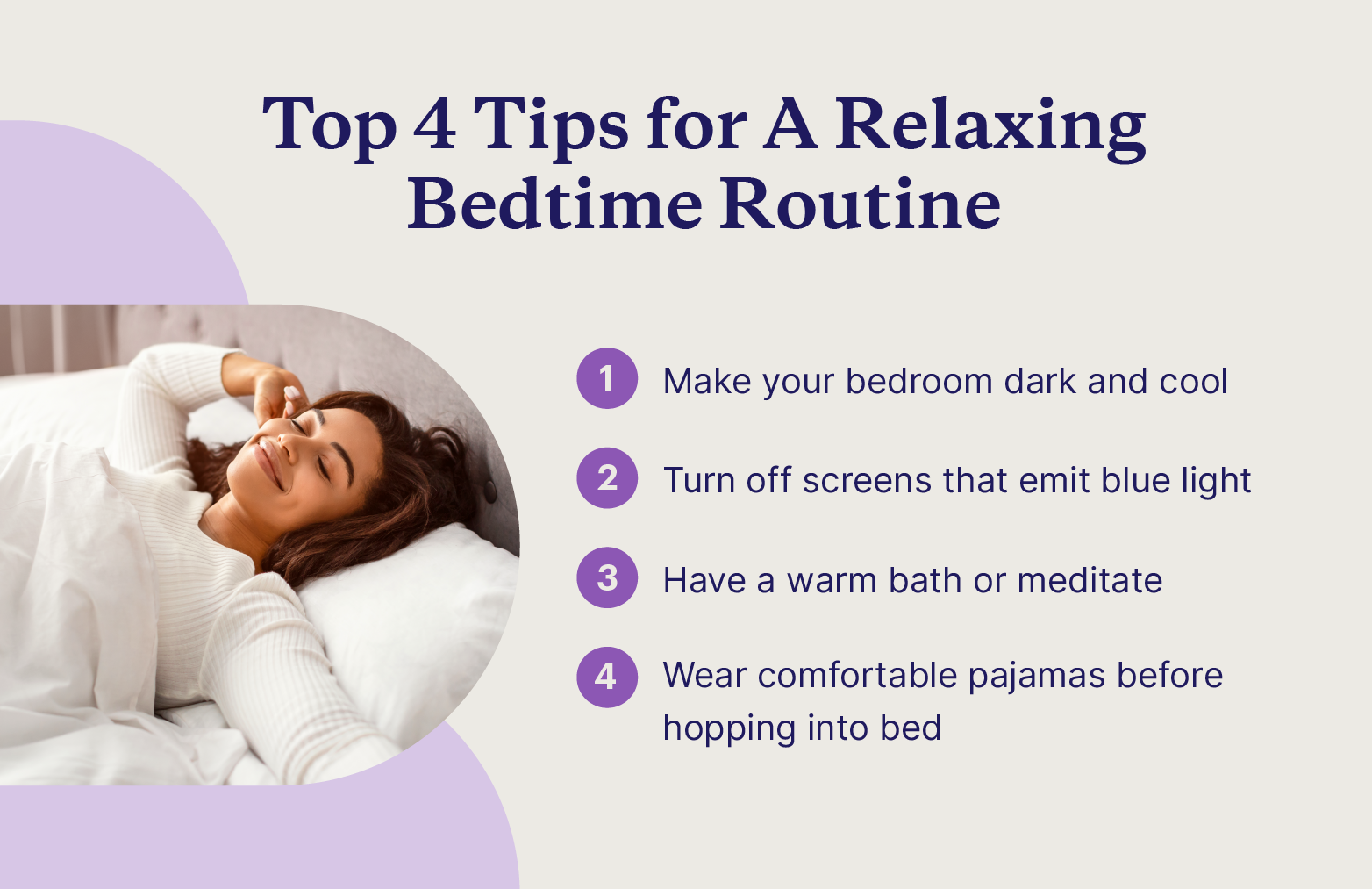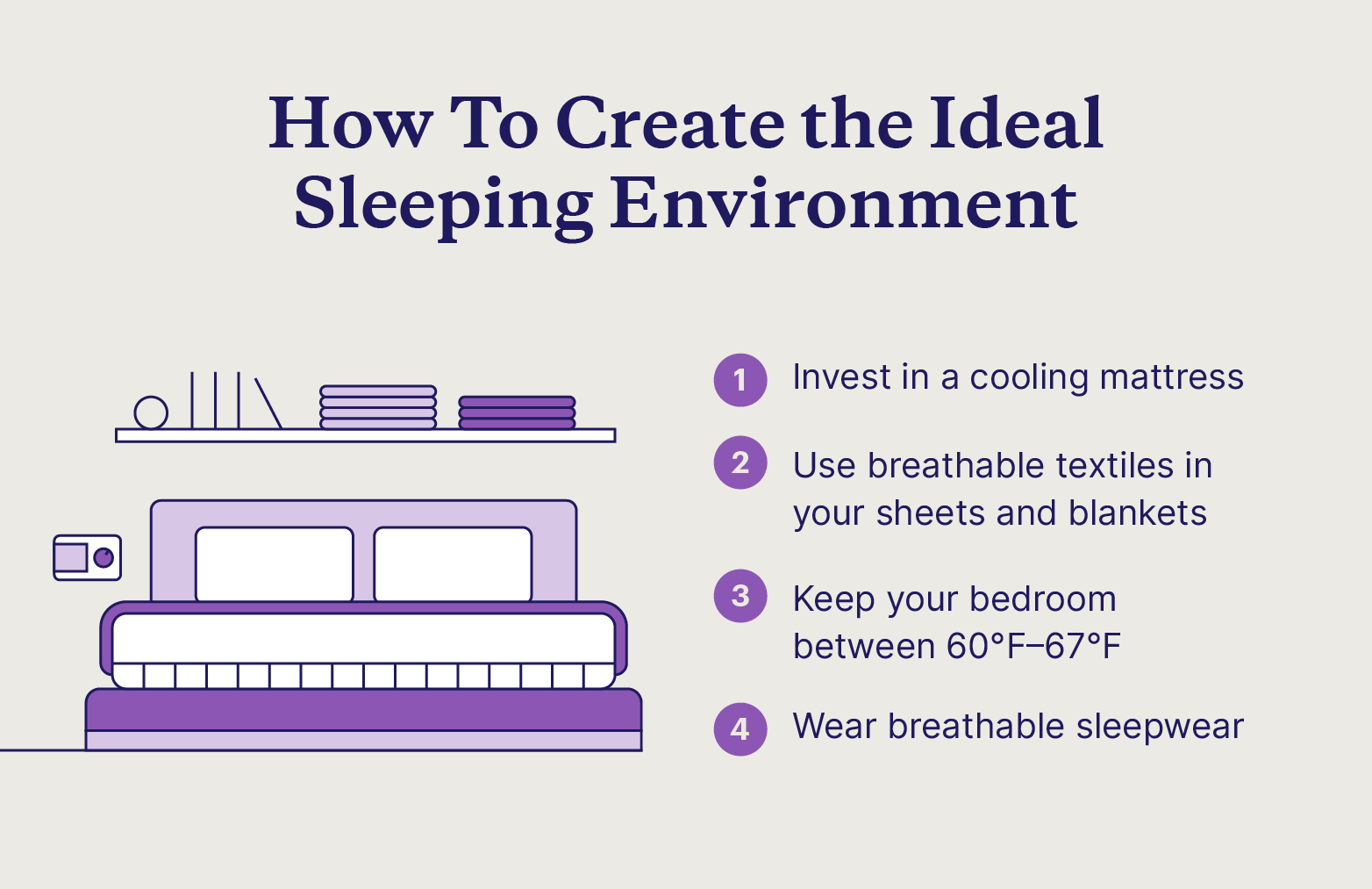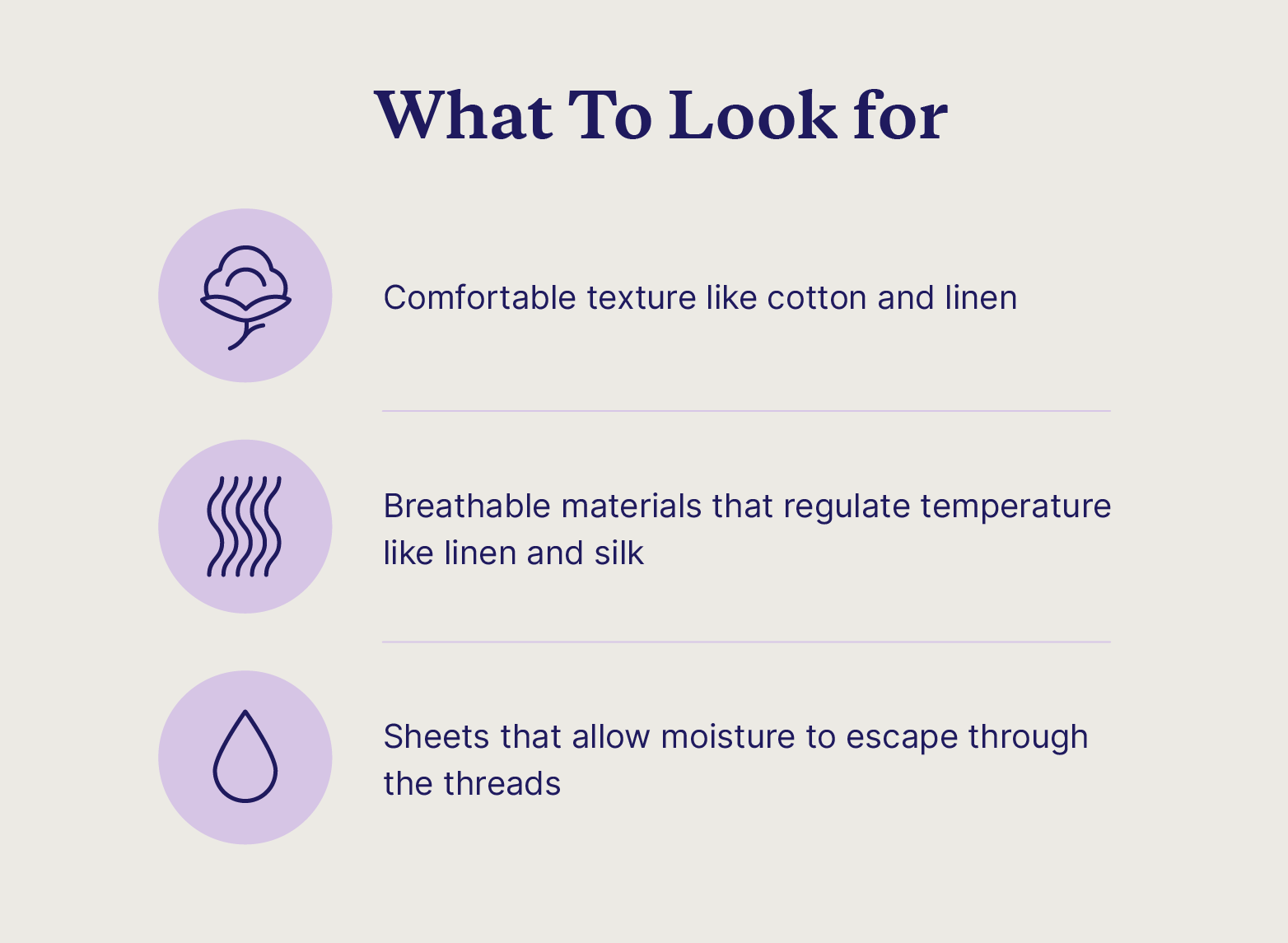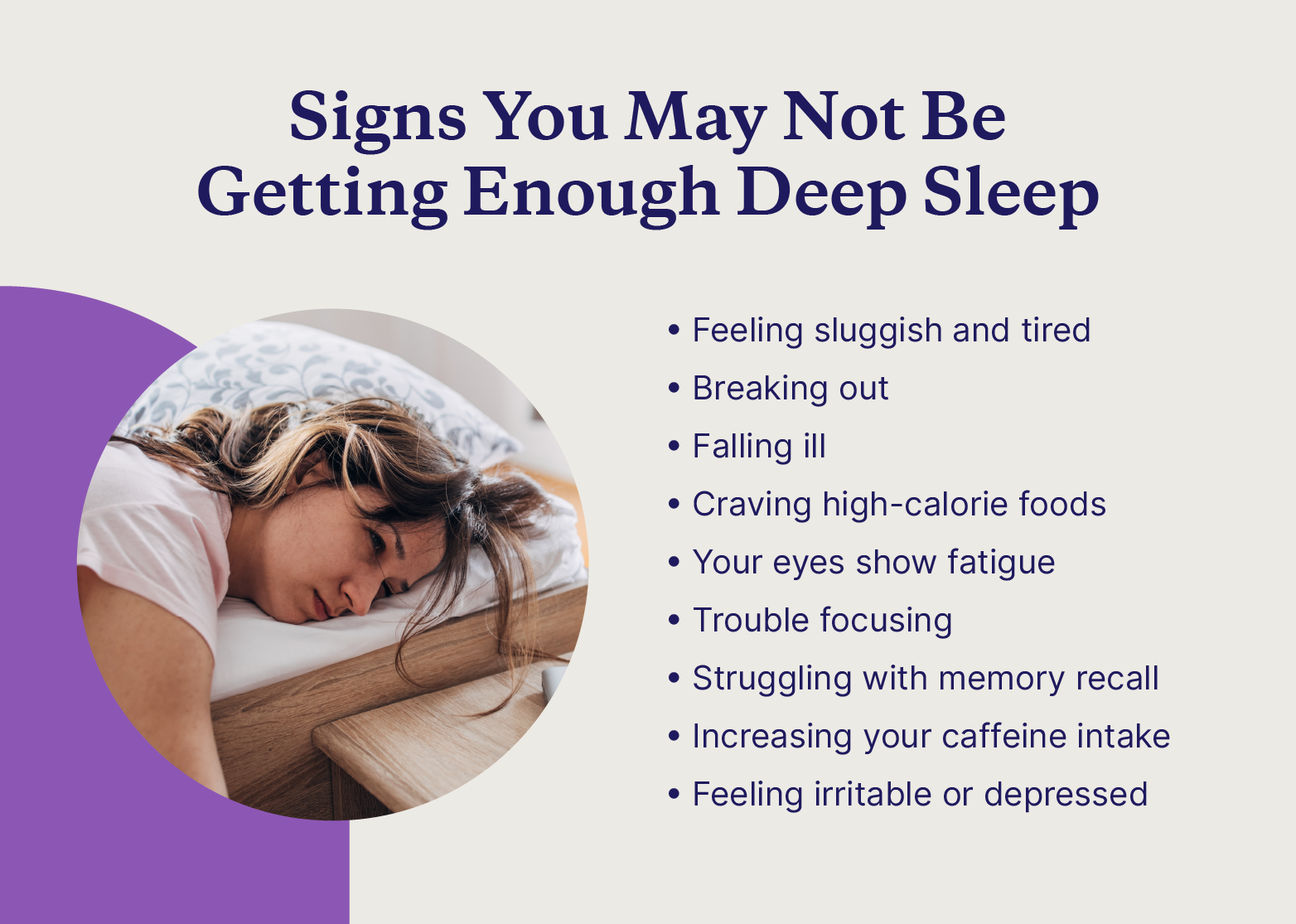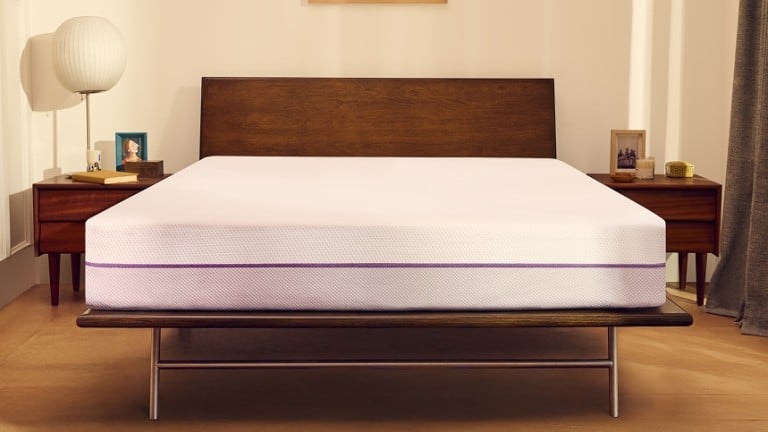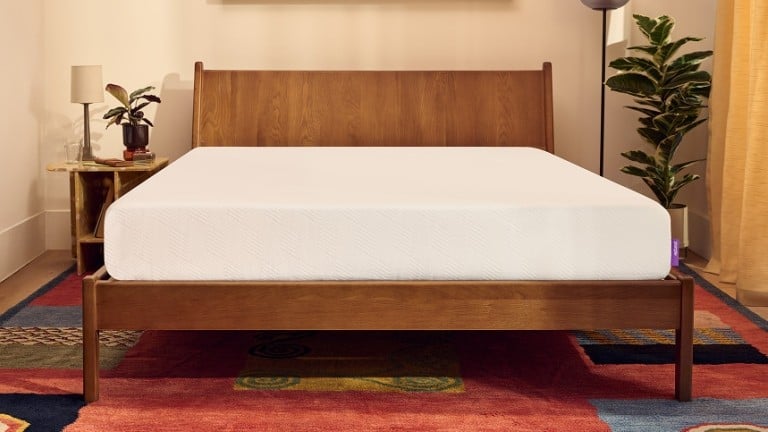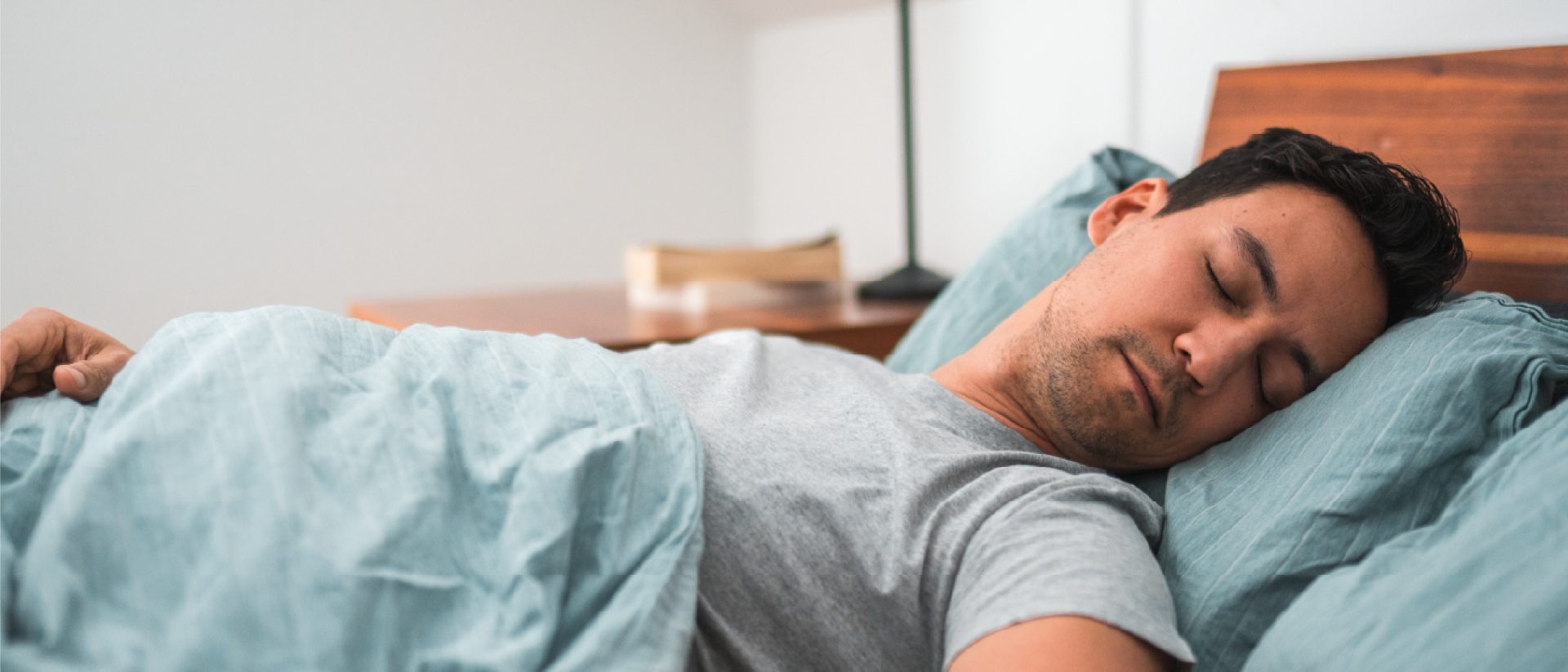
How to Get More Deep Sleep: 13 Science-Backed Methods & Benefits
Deep sleep is the third stage of sleep, where delta waves (brainwaves) are synchronized and slow. On average, adults need 1.4 to 1.8 hours of deep sleep a night. You can improve your deep sleep with better sleep practices and a maintainable sleep schedule.
Deep sleep is vital for our daily health, but what is it? And how do we get it? Achieving a state of restful, deep sleep can really wear you down if you don’t know where to start. That’s not to mention that deep sleep becomes increasingly important as we get older because we typically end up getting less.
Slow-wave sleep (deep sleep) happens in your third stage of non-rapid eye movement sleep (NREM sleep), usually about an hour after you fall and stay asleep without interruption. When you’re in a deep sleep state, your brain's electrical activity slows down to a 0.5 to 2-hertz frequency known as delta waves.
Unfortunately, simply falling asleep at night does not guarantee that you’ll get a sufficient amount of deep sleep which contributes to our cognitive functions, immune system, and overall wellness. Luckily, there are several ways you can achieve more deep sleep, and this post will guide you through some strategies.
Key Takeaways:
- Deep sleep happens in your third stage of non-rapid eye movement sleep(NREM sleep).
- Most adults should aim to get 7–9 hours of sleep, with 20% of that in deep sleep, which amounts to around 1.4 – 1.8 hours of deep sleep.
- Deep sleep contributes to our cognitive function, immune system, and more. Lack of deep sleep can lead to impaired memory, fatigue, and mood changes.
1. Establish a Bedtime Routine
Your body has an internal clock—a circadian rhythm—that controls your sleep-wake cycle. It’s important to keep it consistent, but many factors can disrupt your circadian rhythm and prevent you from getting a good night’s sleep.
Good news: you can establish a sleep schedule that trains your mind and body to stay in rhythm. To establish a healthy bedtime routine as an adult, implement habits that are achievable for you in the long term. Below are some routines worth considering:
- Create a relaxing bedtime environment: Make your bedroom dark and cool.
- Unplug from screens and electronics: Put your devices aside and turn off the TV 30 minutes to one hour before bedtime.
- Relaxation techniques: Draw a warm bath, create a soothing skincare routine, or meditate before bed to relax the body and mind.
- Get into sleepwear: Get into the habit of wearing pajamas to signal to your brain that it’s time to sleep soon.
No matter what bedtime routine you choose, consistency is key. If you're not sure how much sleep you need or when you should go to bed, you can use a sleep calculator to get options for your ideal bedtime and wake-up time.
2. Avoid Caffeine 6 Hours Before Bedtime
Avoid caffeine in the evenings and 4–6 hours before bedtime. Caffeine can reduce sleep quality, especially when taken in the evening around bedtime.
Adenosine is a substance in the brain that makes us tired and urges us to sleep, and caffeine is an adenosine blocker. That means it prevents adenosine from signaling to your brain that it’s bedtime. And, depending on your tolerance, caffeine can stay in the system for hours.
Limit or avoid the following altogether before bedtime:
- Coffee
- Tea
- Sugary soft drinks
- Energy drinks
- Chocolate
Sometimes, it’s not the caffeine we crave but the sensations associated with caffeinated substances, like warmth and relaxation. If this is the case, opt for herbal teas and decaffeinated coffee instead to enjoy both sleep and comfort.
3. Avoid Electronics Before Bed
One of the best things to do when you can't sleep is avoid your TV, laptop, computer, tablet, and phone starting one hour before bedtime.
Our eyes are sensitive to various light wavelengths, with sensitivity to blue light being especially high. The brain produces a sleep hormone called melatonin when light decreases.
However, electronics emit artificial blue light that has short wavelengths. During the day, blue light creates more alertness and energy, but it can be overstimulating at night and send wrong signals to the brain to stay awake.
Get off the screens and try a nighttime routine that stimulates sleep, like reading a book, writing, or meditating.
4. Move Your Body
Research shows that people who exercise regularly get more deep sleep during the night. To improve your sleep quality, aim to do moderate exercise three times a week.
Cardiovascular exercise and strength training impact sleep-regulating hormones. Cortisol is a stress hormone that interferes with sleep at heightened levels, but exercise can significantly reduce it.
Exercise also releases endorphins, which reduce stress and elevate our mood. This helps prevent disruptions in our sleep cycle, encouraging more restful deep sleep. Pairing regular exercise with the right sleep environment—such as a supportive mattress for back pain—can further enhance the quality of your rest.
Some achievable exercises that can facilitate deep sleep include:
- Cardiovascular exercise: Walking, jogging, running
- Strength training: Push-ups, squats, weightlifting
- Yoga and pilates: Deep breathing exercises, gentle stretches
While exercise can lead to more deep sleep, a heightened heart rate, body temperature, and adrenaline level before bedtime may impede your overall sleep. Experiment with an exercise schedule to see what works best for you.
5. Set Your Ideal Sleep Temperature
Although comfort levels vary, most adults sleep well if the temperature is between 60 and 67 degrees. Set yourself up for success by making your bedroom the ideal sleeping temperature.
Just like light influences our circadian rhythm, temperature does too. Our bodies fluctuate in temperature throughout the day, and they’re at their lowest when we’re asleep. External influences that heat our bodies may disrupt our deep sleep, so it’s important to keep our body temperatures cool to prevent overheating throughout the night.
While adjusting your air conditioner + fans or opening your windows can be an obvious and effective approach, you could also try the following options:
- Cooling mattress and pillows: Designed to regulate your body temperature and keep you cool throughout the night.
- Blackout curtains: Blocks out light and heat sources.
- Lightweight sleepwear: Sleepwear made of cotton, linen, and silk.
6. Invest in a Good Mattress
If you can’t get comfortable in bed, it may be time to find a new mattress—one that alleviates pressure points, promotes proper alignment, and encourages deeper, more restorative sleep.
A mattress designed to reduce pressure and support your body’s natural curves can make a meaningful difference in how long you stay in deep sleep. In fact, sleepers on Purple Restore Collection mattresses reported more deep sleep per night1, helping support better overnight recovery and overall sleep quality.
Here are other considerations for your ideal deeper-sleep mattress:
- Proper spinal alignment: Your spine position must be neutral to avoid muscle tension.
- Motion isolating: If you share your bed with a partner, motion isolation will help your partner sleep comfortably.
- Temperature regulating: A cooling mattress that regulates temperature can help you maintain deep sleep and avoid sleep disruptions from overheating.
Do note that while good quality mattresses can last you a while, you should consider replacing your mattress every seven to ten years—or whenever you see signs of wear and tear.
7. Replace Your Pillow
Pillows also promote better deep sleep, provided they’re the right ones. While the ideal pillow boils down to individual preference, there are multiple considerations to take into account when searching for the right pillow. Let’s see some of them below:
- Neck support: Your pillow should support the natural contours and curvatures of your neck to prevent strain.
- Spinal alignment: Your head and spine should align comfortably with your pillow to avoid muscle strain and long-term spinal issues.
- Temperature balance: Cooling pillows can help promote deep sleep and prevent disruptive overheating with their breathable materials.
For side sleepers in particular, the best pillow for side sleepers is typically firmer and higher-lofted to maintain proper alignment and reduce pressure on the neck and shoulders.
The right pillow for you depends on your preferences, and even if you’ve found the perfect one, be sure to replace it every two years (or earlier, if needed). Otherwise, you won’t be feeling the benefits.
8. Introduce Deep Touch Pressure (DTP)
In addition to mattresses and pillows, some products provide Deep Touch Pressure (DTP), which promotes physical + mental relaxation, as well as pain, ache + muscle tension relief. Weighted blankets are a DTP must-have for those who’d like to experience those benefits.
The Bearaby Weighted Blanket, for example, gets its weight from organic cotton, and the gentle pressure spreads evenly over the body, mimicking the sensation of a warm hug.
These products can encourage your body to release serotonin, a hormone that elevates your mood and serves as a precursor to melatonin. Your cortisol levels can decrease as you relax under the weight of these blankets— a great recipe for quality deep sleep.
When getting a weighted blanket, consider the following to find the best one for you:
- Weight: Choose a weighted blanket that’s about 10% of your body weight (or within your comfort range).
- Filling material: The Bearaby Weighted Blanket’s organic cotton provides comfortable and substantial weight, but depending on your preference, you can also opt for a blanket with plastic pellets or natural rice/millet fillings.
- Temperature balance: Look for blankets made of cooling material like cotton, linen, and silk.
9. Upgrade Your Sheets
Your sheets are a key piece of your sleep environment and work with your mattress, pillows, and blankets to give you the best sleep. If your sheets aren’t comfortable, the other pieces of your sleep environment may not help you sleep as much as they could if you had better sheets.
Let’s look at some considerations when upgrading your sheets:
- Texture: Natural fibers like cotton and linen are smooth to the touch.
- Temperature regulation: Sheets with lower thread count and made of cotton, linen, wool, and silk are more breathable and help maintain body temperature.
- Moisture regulation: Microfiber sheets keep moisture away through capillary action, allowing liquids to escape through the fibers freely.
Note that sheet needs can change with the seasons and over time. Be sure to have multiple sets to rotate throughout the year and replace them every 6 to 12 months since you’ll use them so often.
10. Play a Sleep Playlist
Calming, ambient music can create a serene auditory experience that helps facilitate a conducive sleeping environment. Relaxing music stimulates the release of endorphins, reducing cortisol levels and promoting relaxation.
While relaxing music is one of the best sounds to sleep to, there are a variety of other options that can create a sleep-inducing sonic experience. Let’s take a look at two of them below.
- White noise: A consistent, steady sound like that of television static or an electric fan.
- Pink noise: A balance of different pitches and tones with the lower frequencies being more pronounced. Think rainfall, river streams, and wind sounds.
Consider building a playlist of the above sounds to repeat throughout the night at a controlled and non-disruptive volume.
11. Check in With Your Mental Health
Elevated cortisol levels promote wakefulness and prevent us from getting deep sleep, and you need deep sleep to regulate stress. While it’s not uncommon to get too stressed to sleep, prolonged bouts of sleep deprivation will exacerbate your stress further.
Consider the following methods to help alleviate some of your pre-sleep stress:
- Journal or make to-do lists: If your daily tasks are anxiety-inducing, try writing them down for tomorrow to help clear your mind.
- Practice self-care: Be mindful of your physical and mental limits and implement routines to rest and recover from everyday toils. Try blocking out time in the day specifically for you to engage in a favorite hobby or pastime.
- Meditate: Mindfulness meditation techniques that focus on the now can help repel the stress-inducing thoughts of the week. Try 5-10 minute sessions daily.
While there are a variety of practices and techniques you can incorporate into your daily life to help your mental health and your deep sleep, you should also consult with a licensed professional to address mental health concerns that surface-level methods can’t resolve.
12. Increase Your Fiber
Fiber-rich foods like legumes, grains, fruits, and vegetables can contribute to an increased amount of quality deep sleep by indirectly addressing bodily sleep disruptors like hunger and digestion problems.
Let’s take a look at some of the best foods to help you sleep better below:
- Legumes and nuts: Peanuts, almonds, chickpeas, black beans, kidney beans
- Grains: Quinoa, brown rice, whole wheat pasta, and bread
- Fruits and vegetables: Avocados, bananas, spinach, kale, and cabbage
While these foods provide gut-healthy fiber, they also contain other benefits, like magnesium, heart-healthy fats, and complex carbohydrates.
Long story short, a nutrient-dense, fibrous diet helps your digestive tract and your heart, and these overall body benefits may improve your sleep quality..
13. Know When to See a Doctor
If you’ve been experiencing prolonged deep sleep problems or specific symptoms you can’t alleviate through sleep-promoting methods, consult a doctor or other licensed healthcare professional to help diagnose your condition and provide treatment.
Consult with your doctor if you experience any of the following:
- Insomnia: If you have persistent difficulty falling asleep despite good efforts to create a conducive sleep environment.
- Restless legs syndrome (RLS): If you have sensations or urges to move your legs at night or at bedtime.
- Sleep apnea: If you or your partner reports you having disruptive snoring, gasping, or choking sounds when you sleep.
- Sleepwalking: If you’re found walking while you sleep, unable to recall the sensation of getting up.
While there are a variety of methods to help get more deep sleep, there may be more serious underlying issues that prevent you from doing so. If you find that your issues are affecting your sleep hygiene and quality, it’s time to see a doctor.
Deep Sleep Benefits
Deep sleep is a part of our larger sleep cycle and integral to our overall health. Without sufficient deep sleep, we may suffer a decline in cognitive functions, growth hormones, memory, and more. Some of the benefits of deep sleep include:
- Growth: Deep sleep is important for growth and development, especially for children, as it allows the release of body growth hormones to support muscle + tissue development and repair.
- Memory: Deep sleep helps us retain the information we obtain throughout the day, improving memory retention.
- Learning: Deep sleep aids cognitive function, especially problem-solving, which aids our ability to learn new skills and abilities.
- Recovery: Deep sleep restores our cells and heals larger physical injuries like broken bones, sprained joints, etc. For athletes, deep sleep facilitates better athletic performance.
- Mood: Deep sleep contributes to our overall mood with hormone regulation and balance.
How Much Deep Sleep Do You Need by Age?
Facts about sleep show deep sleep should account for at least 20% of daily sleep, but this may also fluctuate to 25%. Generally, children require more deep sleep for body and brain development, and deep sleep requirements gradually decrease as we age.
While the following are estimates, your deep sleep requirements are specific to you and may differ from general specifications.
Age Range | Total Sleep Recommendation | Deep Sleep Recommendation |
| 0–3 months | 14–17 hours | 2.8–3.4 hours |
| 4–11 months | 12–15 hours | 2.4–3 hours |
| 1–2 years | 11–14 hours | 2.2–2.8 hours |
| 3–5 years | 10–13 hours | 2–2.6 hours |
| 6–12 years | 9–11 hours | 1.8–2.2 hours |
| 13–17 years | 8–10 hours | 1.6–2 hours |
| 18–64 years | 7–9 hours | 1.4–1.8 hours |
| 65+ years | 7–8 hours | 1.4–1.6 hours |
What are the Risks of Not Getting Deep Sleep?
Without deep sleep, your body may experience a decline in many cognitive functions and hormonal balance. Below are some of the negative effects that result from a lack of deep sleep:
- Mental fatigue: Concentration, problem-solving skills, and other cognitive functions become more difficult to apply in daily life.
- Hormonal imbalances: Hormones that rely on deep sleep for their release, such as growth hormones, cortisol, melatonin, and more, will suffer imbalances, resulting in higher stress.
- Lower immune system function: Our immune systems need the benefits of deep sleep to combat diseases and infections effectively. With a weakened immune system, your body is more prone to diseases.
Deep Sleep FAQ
There are multiple factors that contribute to deep sleep deprivation, as well as multiple benefits that come from getting sufficient deep sleep. Understanding them all can be difficult, so we added an FAQ below to reference as you learn how to get more deep sleep.
What Causes Lack of Deep Sleep?
While there are a variety of factors that can cause a lack of deep sleep, some of the main culprits include:
- Insomnia: The source of insomnia can stem from stress, depression, anxiety, and other mental issues that can stimulate the release of cortisol.
- Sleep apnea: When the muscles in the throat relax too much during sleep, your upper airways get blocked, causing loud snoring, gasping, and even choking.
- Sleepwalking: Sleepwalking mostly occurs during the deep sleep stage, and while you may be unaware of your movements, your body is unable to gain the full benefits of deep sleep due to the fragmented deep sleep cycle.
What Is Shallow Sleep Syndrome?
Shallow sleep syndrome or nonrestorative sleep is a sleep disturbance where you feel tired even after a full night of sleep. Those who wake from this type of sleep feel fatigued, mentally impaired, and irritable.
Shallow sleep syndrome can result from sleep disorders like insomnia, sleep apnea, and RLS. Like sleep disorders, it requires solving the underlying issues that contribute to it.
Is REM or Deep Sleep Better?
Rapid Eye Movement (REM) sleep and deep sleep form core sleep; individually, both have immense benefits and are equally essential parts of the sleep cycle.
REM sleep helps with:
- The dreaming process
- Mental restoration
- Memory and learning
Deep sleep helps with:
- Physical restoration
- Growth and development
- Mood regulation
While there’s a lot of crossover between the two types of sleep, you’ll need both for optimal sleep.
Does Melatonin Help You Get More Deep Sleep?
You can use melatonin supplements for sleep-related issues such as trouble falling asleep, but its effectiveness relates more to its ability to influence the timing of one’s sleep, rather than increasing the amount of deep sleep one gets.
Can You Get Too Much Deep Sleep?
Deep sleep is the most important part of your sleep cycle. As your brain waves slow down into delta waves, your body can repair and regenerate muscle, bone, and soft tissue. Some of your key hormones are also timed to release during deep sleep, helping you regulate your metabolism and restore your energy levels for the day.
At Purple, we know the importance of deep sleep. That’s why we design products to help our customers sleep better and live healthier lives. Check out some of our most popular products today.
More to Explore
Level-up your sleep routine with our most-loved products.

